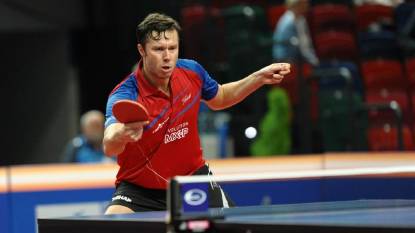How to Maintain Mental Toughness in Table Tennis
By: Mark
March 23, 2019 | Updated: December 21, 2025
How to Keep Your Mental Resilience Solid During a Match.
If you are an avid table tennis enthusiast, odds are you have heard of Werner Schlager and his famous Table Tennis: Tips from a World Champion . In his book, Schlager coins the phrase "training world champions" to describe people who are absolutely amazing at table tennis when they are practicing or playing with friends and family, but they clam up and can’t cut it when it comes to the important matches.
These are the people who, when we watch them playing against the wall in their garage, are so amazing and so fast that we think, "They simply can’t be beaten!" However, these same people who don’t make it past the preliminaries in a real tournament, or if they do, they don’t make it to the championship round. When the tough get going, you need to start thinking about strategy and focus on every point to stay in the game
Table tennis is a sport, and as with any sport, showing up and looking pretty isn’t going to get you very far. The only way you are going to succeed in anything is by pushing yourself outside of your comfort zone and challenging yourself physically, tactically, technically, and yes, even mentally. In fact, that last one might be more important than all the others.
Mental focus is the key to any successful table tennis match. Because it is such a rapid-fire game, you have only mere seconds for a technical analysis of your next move before you have to make it. Technical perfection is less important in these instances than mental acuity and quick reflexes.
This also goes for upcoming matches. It is imperative that you get your head in the game and focus on your next scheduled match as soon as possible. One of man’s greatest flaws is his tendency to focus on the past. The past cannot be changed. Good or bad, it is set in stone.
If you have recently won an amazing rally, it is only natural for you to think about that win over and over in your mind, maybe even tell others about your spectacular victory. Sharing a victory story is fine; you can even take a few moments to congratulate yourself on a game well played. However, after that, you have to move past it. After one win, you need to start thinking immediately about your next rally.
The same goes for an unexpected loss or a blunder you made in the last match. We all strive for perfection; however, in that quest, you can’t let yourself become despondent when you fall short. When you are in the middle of a heated match and miss what should have been an easy point, you cannot let that distract you. Make note of the error, file it away for later analysis, and regroup. That next ball is going to come flying back over that net sooner than you think. Your head needs to be in the game when that happens so that you don’t make another mistake.
Furthermore, and this is a big one, never allow yourself to be overcome with frustration. Once you become flustered, it is nearly impossible to get your head back in the game, so don’t become frustrated in the first place!
I know this can be difficult. Despite the fact that I am generally calm, cool, and collected, I have played some matches that made me want to break the table, rip the net in half, and throw my paddles across the room. However, those feelings never help anything. They are simply a hindrance that will make me perform even more poorly.
Being frustrated is a black hole of badness. Table tennis requires a calm analysis of each move, and frustration does nothing but wreck that necessary calm. That’s why it is imperative that you know yourself well. You need to feel those first creeping feelings of frustration when they begin to sneak up on you.
Once you recognize the signs, you can combat frustration before it takes a hold on you. Develop your own methods for this. Find your happy place. Take some deep yoga breaths. Take a brief water break and center yourself. Whatever works for you, do it!
One thing that all professional athletes have in common is that they all sublimate their own various positive techniques to combat their negative emotions while competing. It is unclear whether or not they actually feel the positive emotions they put out there, but it doesn’t matter. They do what they have to do, because that’s all they can do.
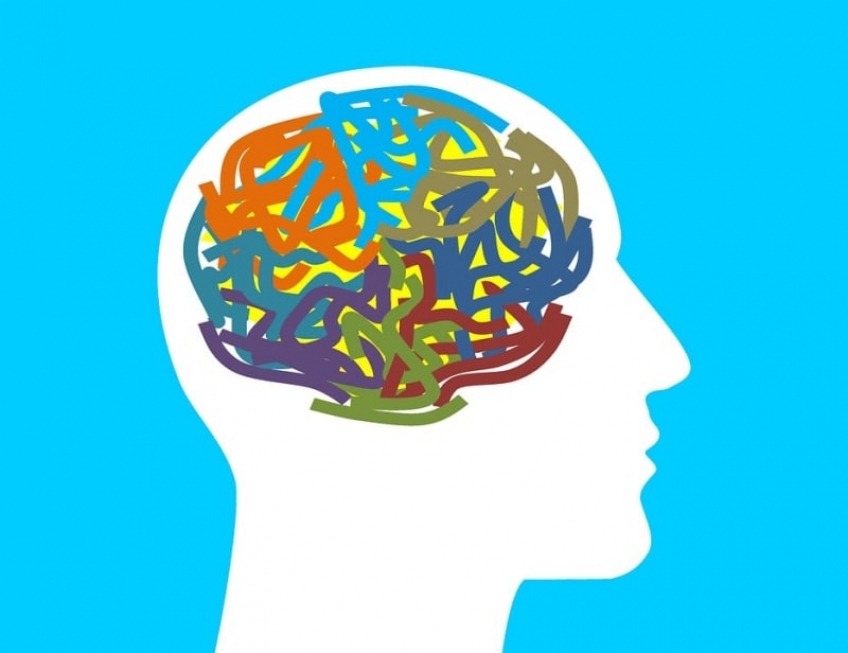
Take, for example, the stereotypical "stomach butterflies."
We all get them, but what matters is how we deal with them when they come.
An inferior or average player gets butterflies and automatically equates those nervous feelings with an impending loss, assuming - usually wrongly - that his opponent does not get those same feelings of nervousness before a game. This kind of thinking is erroneous, and it gets the player nowhere.
Elite competitors, however, get those same butterflies, but they don’t let those feelings of anxiousness and nerves overcome them. They recognize that all players get nervous before a big match, and they use those nerves to play better, harder, and more passionately.
Consider this... It is the fifth set of a match, and the score is tied ten to ten. How do you proceed?
For players that don’t balk at a challenge, they know exactly how to handle this situation. They don’t change their tactics; they don’t let their "game point" nerves overcome them. Instead of going overboard and giving out one last, glorious burst of angry energy, good players remain calm. They play just as calmly and rationally as they did during the opening serve. They play their best game and wait for their opponent to make the passionate, last minute mistake.
Schlager advises playing a tight end game just like you would if the score was tied five to five instead. His years of experience have taught him that worrying and panicking about a closely tied end score will only hurt your game. His advice is to imagine you are playing at an earlier point in the game when your stress level wasn’t so high. This will help put you in the right mindset to finish your game strong.
Schlager also refers to the human fist as "an expression of willpower and strength."
Oftentimes, when we've made a particularly good move or won a difficult match, we refrain from celebrating because we feel as though it is bragging or even childish. However, we never fail to berate ourselves loudly after making mistakes.
This is not the right attitude to have. A good player keeps the self-criticism to a minimum and celebrates his victories. Never be afraid to "cho" after a good hit or winning a victory.
The term "choing" was coined to describe the act of lifting one’s fist in the air after scoring a point. It helps get the player’s mind on positive thoughts, and it also shows his opponent that he is serious about winning this match.
In fact, there have been some coaches, notably Coach Alex Perry from Grantham College Table Tennis Academy , who would actually punish players for failing to "cho" after gaining a point on an opponent. If a player did not celebrate by "choing" after scoring a point, Coach Perry would take that point away from the player.
He didn’t do this to cultivate a team of obnoxious braggarts. Instead, he did it so that players would learn to celebrate their victories instead of getting mentally hung up on their mistakes. He did it as a way of training winners!
What about eye contact?
In many books about training for victory, you will read a lot about eye contact. Many trainers and coaches encourage players to make eye contact with their opponents often as a way of asserting dominance and "staring down" the competition.
When it comes to table tennis, however, this is not always the best approach. Being mentally prepared for a match and confident of victory does not mean you have to be the biggest, baddest thing in the room. All true mental preparedness requires is having a quiet, steady faith in yourself and your abilities.
Self-confidence is an absolutely essential quality to have, but you should never cross over that line into cockiness or overconfidence.
Raw talent can only get a person so far. All truly great athletes and competitors have one thing in common - they work hard. They spend many long, intensive hours training and honing their bodies. However, mental acuity must be achieved in the same way. Mental training must also be a priority.
That does not mean that some people aren’t naturally more mentally prepared than others. Quite the opposite, in fact. There are some people who have a natural predisposition towards calmness, self-confidence, and mental acumen. However, even those people can train harder to improve on their mental readiness, and if you are not one of those people naturally, you, too, can train to become like them.
One thing that helps is experience, and the only way to gain experience is to gain experience. The longer you play the game, the more adept you become at managing your stress and correcting your flaws. So never turn down the opportunity to play a match - whether for competition or just for fun. Every match is a training ground and another opportunity to hone your craft.
Don’t be afraid to push yourself. If you stay inside your limits where you feel comfortable, you will never improve. You must push past your limits, move outside your zones of comfort, put pressure on yourself. You have to challenge yourself, both physically and mentally, if you are to improve.
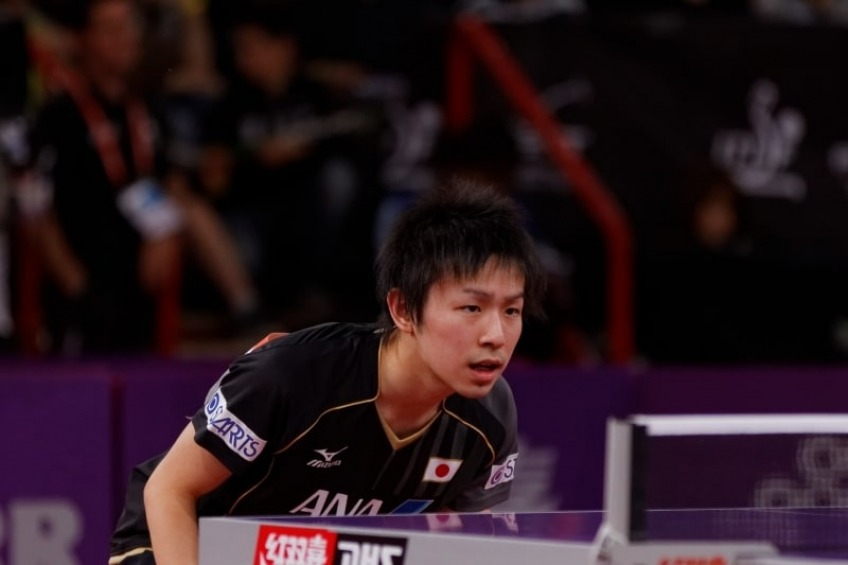
The importance of body language cannot be overstated
Keeping strict control over your movements, reactions, and body language is another important skill to have if you are going to be an exceptional table tennis player.
If you are a spectator at any professional sporting event, you will notice that the best players are never out of control. They are in constant command of their actions and reactions at any given moment. The really good ones are quiet and observant. They aren’t jumping around, cussing, throwing things, and acting foolish. The ones who behave in those ways are generally the ones who get benched regularly or even cut from the team.
You also need to avoid telling habits, such as clucking your tongue, smacking your thigh, tapping the table, shouting at yourself or any other habit that can give your opponent insight into your state of mind. These "tells" will only serve to assist your opponent and do nothing for you. If you aren’t familiar with your tells, try videoing yourself and replay your matches. Notice any recurring habits you have during a game? Make a concerted effort to stop doing those things. You'll be surprised how much ridding yourself of such actions will improve your game.
Okay, but what happens if I do lose control?
If you are playing a game and putting all your mental training into practice but something happens and you still lose control, what should you do? It does happen. Even the best players have a meltdown every once in a while.
When this happens, you need to take a break. Give yourself a self-mandated time out. Not doing so is a fatal flaw. Once players become frustrated to the point of losing control, there is nothing rational left for them to do except take a break.
Many times, though, players don’t want to do this. They know they've lost their cool; they know they aren’t in control; and for some reason, they still won’t take a time out. This is the worst thing they can do for their game. They don’t take the time they need to step back and calm down. Instead, they continue to play while angry, upset, and full of negativity, and their game suffers for it.
Never be afraid to take a time out if you need one. I guarantee you that you will do much better after coming back from a short break to center yourself than you will if you just continue to plow through the game while furious. Trust me on this!
What about people who talk to themselves? Is that crazy?
If you have ever seen a professional competitor talking to himself while standing alone, you've probably wondered if he’s lost his mind. Actually, this phenomenon has a name. It is called "self-talk," and it is actually a very healthy way of dealing with stress and readying yourself for a game.
Self-talk is simply the act of reassuring oneself. People who self-talk are acting as their own motivational speaker , coach, and therapist all rolled into one. Telling yourself to "stay calm" or to "focus" or to "line up this shot" is actually very helpful to your game, but many players refuse to do it.
They are fine with yelling at themselves and berating themselves for bad plays, but they don’t want to encourage and motivate themselves to do better. That is ridiculous. Any therapist can tell you, motivating yourself and coaching yourself to stay positive in tense situations will serve you much better than torturing yourself about your mistakes.
Try to encourage yourself; don’t punish yourself and stay focused under pressure. It will improve your game immensely.
Table Tennis Tips-table tennis coaching: Mental training & stress management basics
Featured Articles
Dive into in-depth stories, exclusive interviews, and expert advice from the world of table tennis. Discover strategies, player spotlights, and behind-the-scenes insights.

Ping Pong Revolution: How Table Tennis Transforms Homes, Offices, and Communities
Table tennis is uniquely positioned as one of the most versatile recreational activities available today. This comprehensive article explores the transformative impact of ping pong across three …
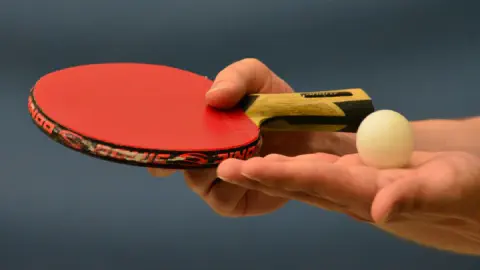
Basic Equipment Needed to Play Table Tennis
What is the basic equipment that you need to get started with playing ping pong? Our guide to the very basic table tennis equipment required to go ahead and start to play. A guide to the basics of …
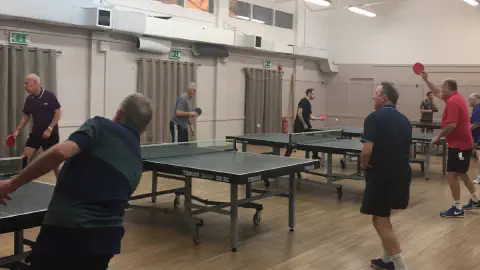
Is Ping Pong Good Exercise? The Top Health Benefits Explained
Table tennis is great exercise both for mind and body. You can use ping pong to keep fit alongside other exercise programs and raise your overall activity levels to lose weight and keep your mind …

Ping Pong Revolution: How Table Tennis Transforms Homes, Offices, and Communities
Table tennis is uniquely positioned as one of the most versatile recreational activities …

Basic Equipment Needed to Play Table Tennis
What is the basic equipment that you need to get started with playing ping pong? Our guide …

Is Ping Pong Good Exercise? The Top Health Benefits Explained
Table tennis is great exercise both for mind and body. You can use ping pong to keep fit …

